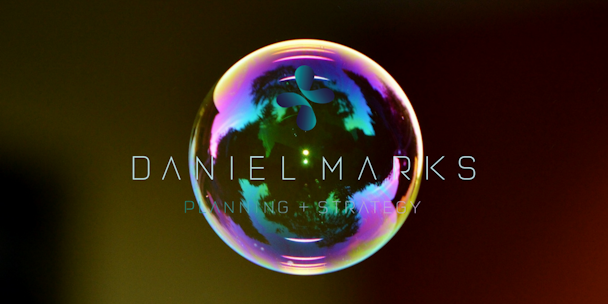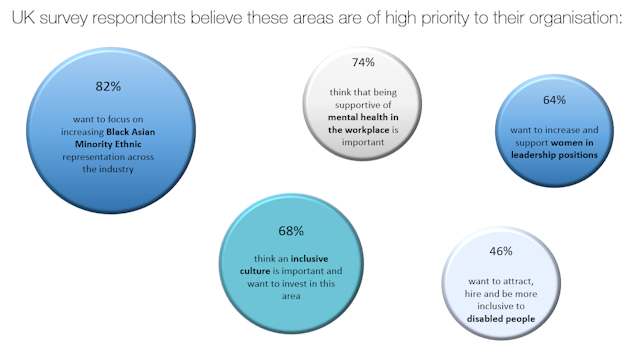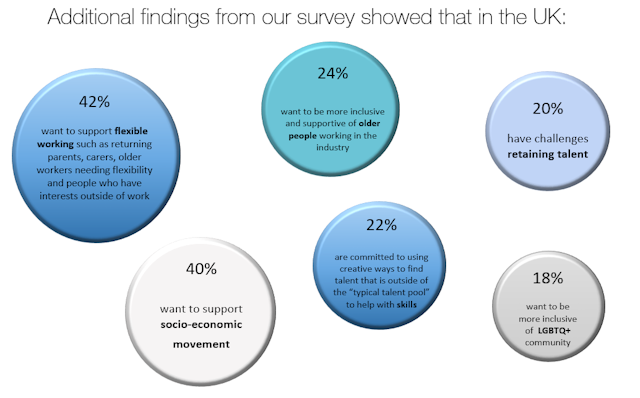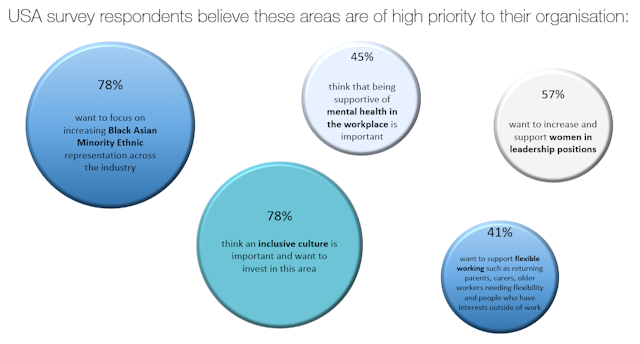What can we learn about the diversity and inclusion challenges facing our industry?
At Daniel Marks, we’re committed to driving Diversity and Inclusion. And to support employers looking to build a stronger, more varied workforce, we met and surveyed 120 participants as part of our ground-breaking initiative “The Panel”.

At Daniel Marks, we’re committed to driving Diversity and Inclusion
We wanted to get a clearer understanding of the talent challenges facing employers around D&I in the current recruitment landscape. The exclusive research, brought together here for the first time, explores which challenges are considered most critical to leading decision-makers in industry and HR.
The feedback we received is invaluable and we hope it will help to shape future initiatives and provide leaders with the persuasive evidence they need to help them build real change for the future.
Our findings are based on insights from face-to-face interviews and data from our survey
We went to industry and HR leaders in the UK and USA and asked them what the most important talent challenges facing their organisations currently were.


In the USA, the most important D&I talent challenges are similar, but there’s a bigger focus on supporting flexible working, with 40% of leaders wanting to invest time in that particular area.

When we look at increasing Black and Asian Minority Ethnic representation across the industry, the UK and USA are pretty close. 82% of UK leaders and 78% of leaders in the USA said this key objective was important to their business; and yet the statistics show there’s still a considerable hill to climb. Creative Equals state on their site that “BAME employees make up 5.5% of senior leadership in the creative sector”, which is unrepresentative of a society with 13% Black Asian Minority Ethnic representation (at the time of the last census in 2011). By those statistics, the number of top flight executives from BAME backgrounds needs to more than double on both sides of the Atlantic if companies are to achieve true racial equality in their workplace.
Inclusivity underpins all efforts geared towards attracting, hiring and retaining diverse talent.
In the UK, 68% of leaders want to focus on building an inclusive working environment, and 74% think it is important to support mental health and wellbeing at work.
Data from UK charity the Mental Health Foundation suggests that supporting mental health and wellbeing at work could increase productivity by as much as 12%.
Talking to industry leaders about D&I has been an encouraging and energising experience, and the motivation for change and the passion for equality and inclusion is clear to see. When we spoke to George Bryant, Chief Creative Officer of The Brooklyn Brothers and co-founder of Night School he commented that: “We have an industry to change. It’s great to see the level of desire there is, but actions must follow. Words alone aren’t enough. True creative leaders must recognize the urgent need to let the most powerful voices in our culture, shine through our industry. Now is their time, not ours. We need to stand back and let them be heard.”

On the face of it, our research would support this: 94% of those surveyed stated that D&I does factor in their business or people (HR) strategies. However, only 52% have an allocated budget for it. Perhaps that’s why, overall, 74% of those surveyed felt that the industry as a whole isn’t tackling D&I related challenges well enough.
Some practical tips for becoming a more inclusive employer
- Incorporate D&I into your business and people strategy and make sure all levels across your organisation are committed to inclusion. Hanisha Kotecha, MD and D&I Advocate, who we met as part of our Panel initiative suggests that:
“D&I education should be invested in so that it’s underpinned in business & people strategy rather than an add on”.

- Communicate clearly why inclusion is important
- Communicate your intent as an inclusive employer
- Extend your network
- Be open to share your experience of what works well and what does not.
- Make your recruitment process as inclusive as possible and remove bias.
- Be inclusive when you onboard people.
- Consider intersectionality when approaching your D&I strategy
- Finally, and perhaps most importantly, be brave, speak out and be a changemaker.
There’s still a long way to go on our journey for equality and inclusion in the marketing services industry, but our findings demonstrate that there is an appetite for change and a willingness to make a material difference.
At Daniel Marks we’re committed to inclusion and diversity and will continue to share plans on how we can make an impact on the specific areas identified in our conversations with industry leaders.
To learn more about our upcoming initiatives, to become a judge or to get involved with The Panel, contact our Head of Diversity & Inclusion, Gaby Dutton-Williams.
For more information on Daniel Marks, please visit www.danielmarks.com

